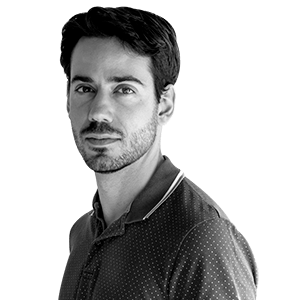Lluís Puigvert: "There are so many runners in Catalonia because we have a deeply rooted culture of sport and mountaineering."
Mountain runner. Winner of the 2025 Olla de Núria Prize.


GironaLluís Puigvert (Girona, 2005) is one of the new Catalan talents in mountain racing. Born in the Girona neighborhood of Domeny, he was crowned champion two weeks ago at just twenty years old. Núria's Pot, one of the most prestigious high-mountain races in the Pyrenees. And he did so battling truly adverse weather conditions, with heavy rain, hail, and wind, which forced him to give his all to reach the finish line. "It was a somewhat strange Olla, because it wasn't the route I would have liked, but winning in those conditions has added value. It's one of the most legendary and famous races, with many people I admire participating," he explains.
But the calendar doesn't stop, and Puigvert has his sights set on new sporting challenges for this season: on October 5, he'll compete for the podium at the Salomon Ultra Pirineo, in the Cadí Natural Park, and at the end of the month, he'll run 32 km to win a medal in the U-23 World Cup final. skyrunning, in Asturias. All this while living and training in his own little world in the Domeny neighborhood of Girona and keeping an eye on his medical studies at the University of Girona.
Toti Bes and Trail Running Girona
Despite his current achievements and promising future, Puigvert only recently started mountain running. It was during the pandemic when, after many years of practicing roller hockey in Girona clubs, he discovered that he had what it took to win the championship. trail runningThe restrictions that prevented him from practicing team sports led him to lace up his running shoes, influenced by his father, who had taken him on hikes since he was a child and is an amateur ultramarathon runner. Puigvert joined the Trail Running Girona group, which trains weekly in the Sant Daniel Valley and is run by professional athlete Toti Bes, owner of the Can Naves mountaineering shop on Ciutadans Street in Girona. "Toti is my grandparents' neighbor and he always told me to sign up. As a child, I already excelled in endurance physical education tests, but when I ran my first mountain race and finished first, I saw that I might have a future," Puigvert recalls.
Medicine at the University of Girona
And if winning races by climbing and descending mountains at full speed is already a feat, it's even more so by combining sports practice with the third year of his medical degree. "I'm studying the degree like any other student, without credit reduction, but as a high-performance athlete, I have a tutor who helps me manage exam date changes if necessary," says Puigvert, who has always been clear about his desire to study. Now he's beginning to envision a professional future as a runner—he's already sponsored by renowned brands, such as Salomon—but his goal is to finish his degree at the University of Girona, and when he's older, once he's exhausted the elite athlete pathway, he doesn't rule out working as a doctor.
However, he's clear that he wants to fully explore the commonalities between both disciplines: "I'd like to be a specialist in sports physiology and performance. As a discipline, it doesn't exist, so perhaps I'd focus on traumatology," he says. For now, she's been able to apply much of the knowledge she learned in the classroom to her daily routine: "I read articles and studies on anatomy and physiology, which have helped me a lot in understanding injuries, optimizing performance, and improving nutrition and recovery," she acknowledges.
2,000-meter elevation gain training in Vallter
During the week, Puigvert combines university classes with training planned by a personal trainer. He often goes out on the paths and trails of the Gavarres and Rocacorba mountains, and when he has time, he takes the car and heads up to the Pyrenees, in the Vallter area, or in winter, when there is a lot of snow at high altitudes, he heads up to Puigsacalm, in La Garrotxa. "For me, being alone in the ordinary mountains is one of the purest expressions of freedom I've ever experienced. Besides, the surroundings are spectacular," he explains. But he also warns that respect must always be maintained, since "the weather in the mountains changes very quickly, and what in the city is a mild storm can turn into a dangerous situation in a few minutes, as was demonstrated on the day of the Olla de Núria earthquake."
In the Pyrenees, when it's time to get some experience and do 3- or 4-hour rides, with over 2,000 meters of elevation gain, he climbs Bastiments twice from Vallter, or does the Vallter-Núria traverse and returns via the Engineers' Path. And one of the most demanding but most enjoyable routes, starting from the same point, is climbing towards Pico de la Dona, careening towards Bastiments, Freser, Pico del Infierno and Noucreus, and returning through the valley to the refuge. A real beast.
Kilian Jornet's inspiration
Puigvert is part of a new generation of Catalan runners making their mark, like Ïu Net, Jan Castillo, and Jan Torrella, following in the footsteps of Kilian Jornet. "I've always admired Kilian. He's impressed me greatly, both as a runner and for his scientific curiosity. He's always experimented with sports physiology, has a great knowledge of his body, and has undergone many studies," explains Puigvert. And, regarding this Catalan passion for mountain running, with a large roster of young runners and specialized clubs and federations, he concludes: "It's not just the environment that makes us good runners, because there are countries with higher and tougher mountains where not as much talent has emerged. In Catalonia, however, we have a very strong mountain and sports culture."
